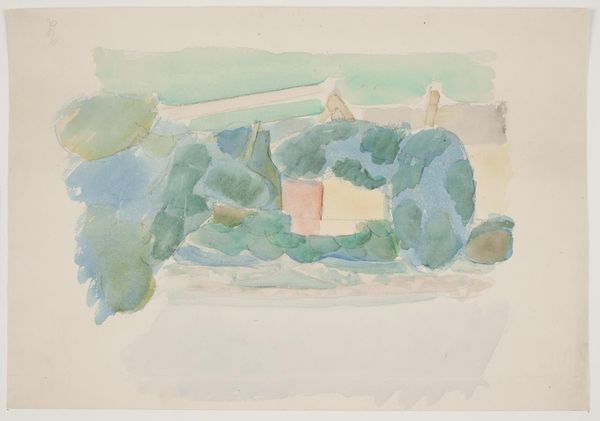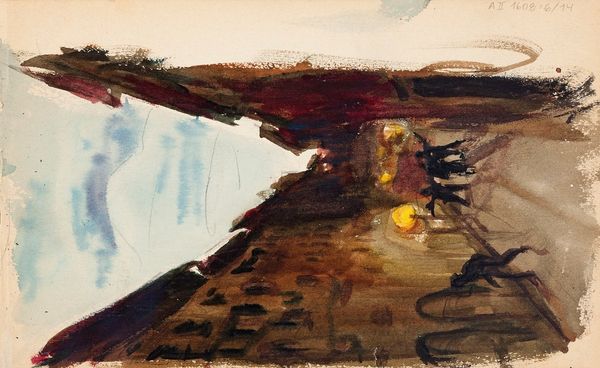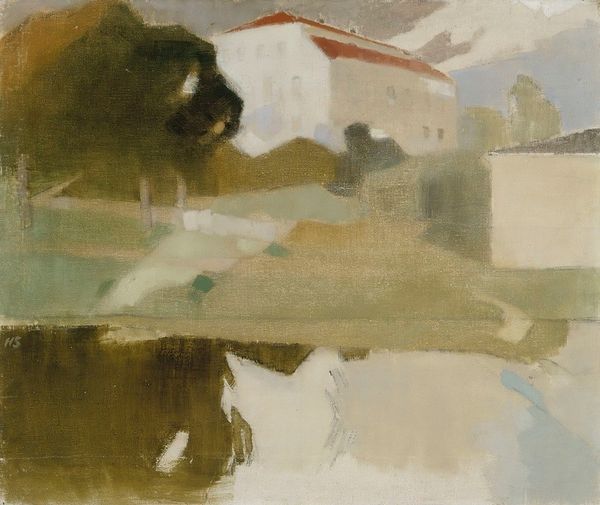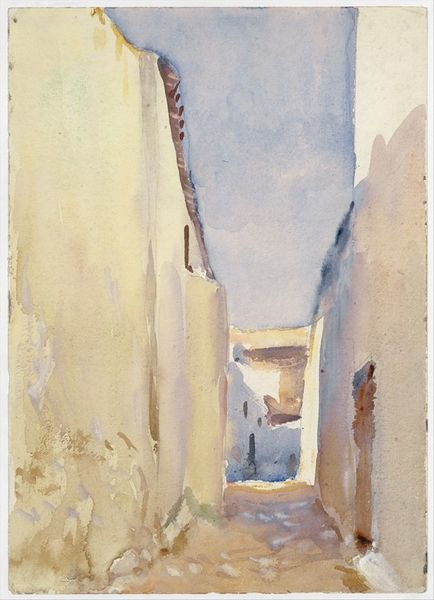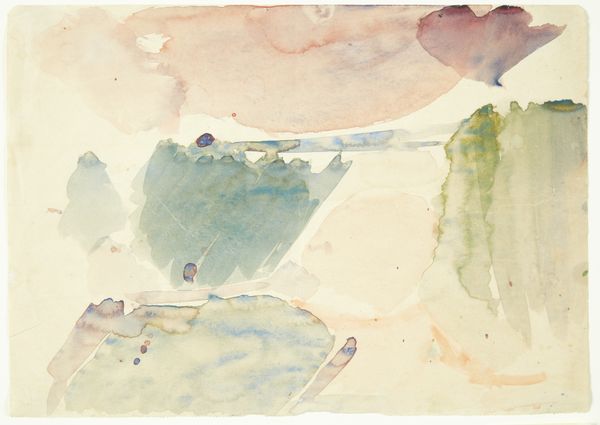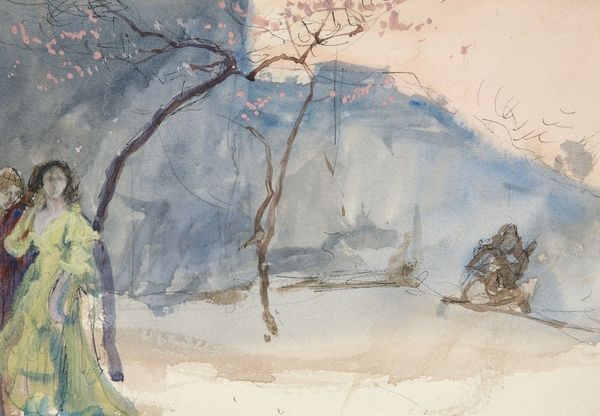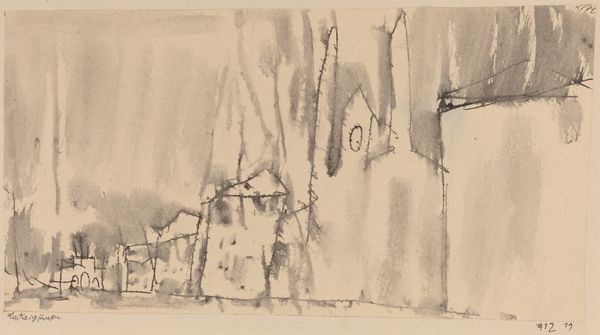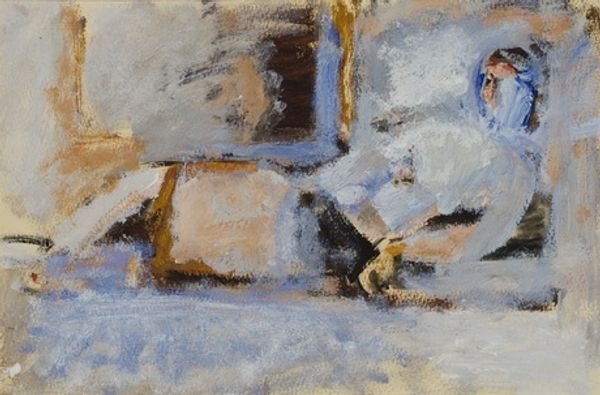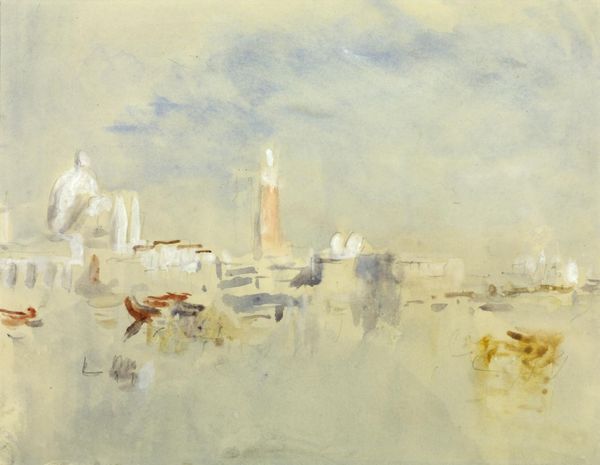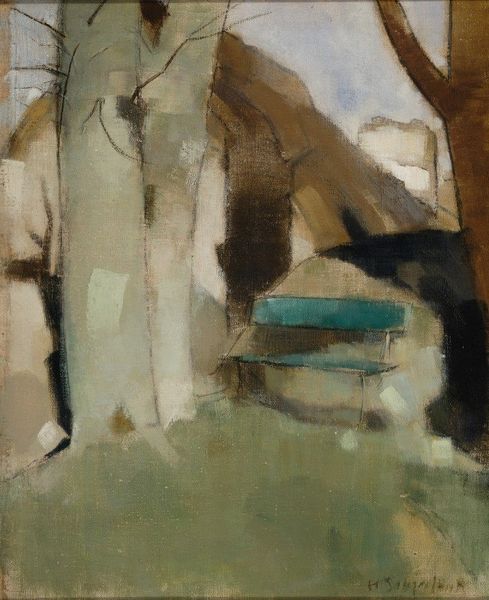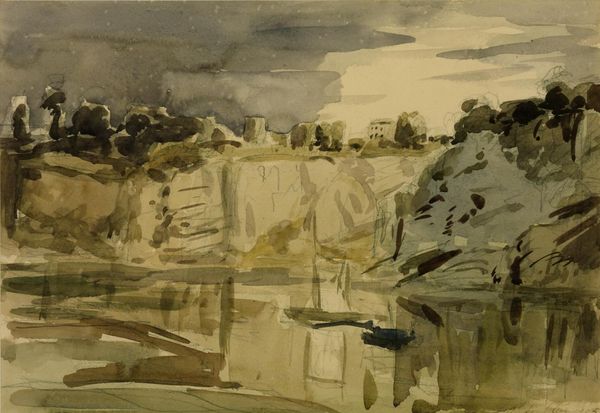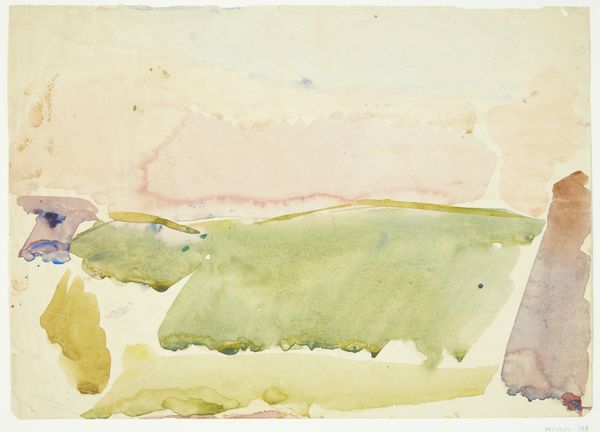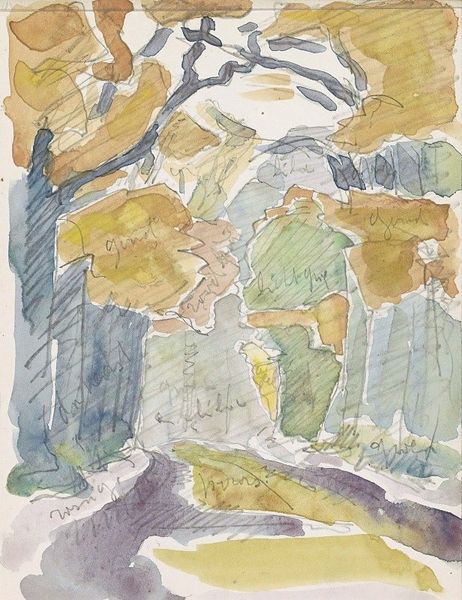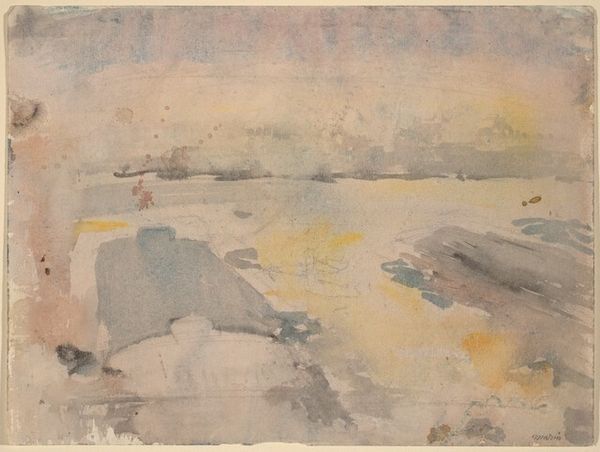
drawing, plein-air, watercolor
drawing
plein-air
landscape
charcoal drawing
watercolor
watercolor
Copyright: Public Domain: Artvee
Curator: Looking at this, I’m immediately struck by how elemental it feels. It’s more mood than monument. Editor: Yes, precisely. What we’re looking at is Edwin Austin Abbey's "Study for Twelfth Night" from 1997. He captured it en plein-air using a mixture of drawing with watercolor and charcoal. There is something about these preliminary strokes that seem deeply embedded in a certain state of the artistic mind. Curator: Absolutely, there's a vulnerability to it. It’s like glimpsing a thought mid-formation. The way he’s handled the watercolor – the sky especially – it’s ephemeral. And yet, that architectural form, those domed shapes emerging from the mist, give it a sense of grounding, like memory taking form. Do you sense a bridge between the mundane and transcendent, here? Editor: Without a doubt. Those forms… the implied architecture suggests structures intended for grand purposes, and yet the wispy execution subverts such a clear understanding. There is always that delicate negotiation between the architectural language of power, religion, and transcendence and the reality of such structures; it always involves both. One has to ask what the artist intends. Curator: Or even, what is unintentionally exposed? This feels almost confessional, doesn't it? The sparseness, the bare suggestion of a structure…It speaks of a certain tentative hope. I wonder what he planned to do with the work had it progressed beyond a study. Editor: That’s an intriguing idea - hope struggling into the visible realm. Given Abbey's interest in theatrical narratives, perhaps this study reflects a landscape imbued with anticipation and illusion. What one hopes the set will be. What one imagines to come from it. Maybe Shakespeare can enlighten the true identity. Curator: Yes. This piece asks us to consider its possibility in the light of all of its referents, from landscape, to stage setting. It really offers the opportunity to imagine countless futures and interpretations. It’s wonderful, thank you for pointing it out. Editor: Thank you; a shared discovery, wouldn’t you agree?
Comments
No comments
Be the first to comment and join the conversation on the ultimate creative platform.
